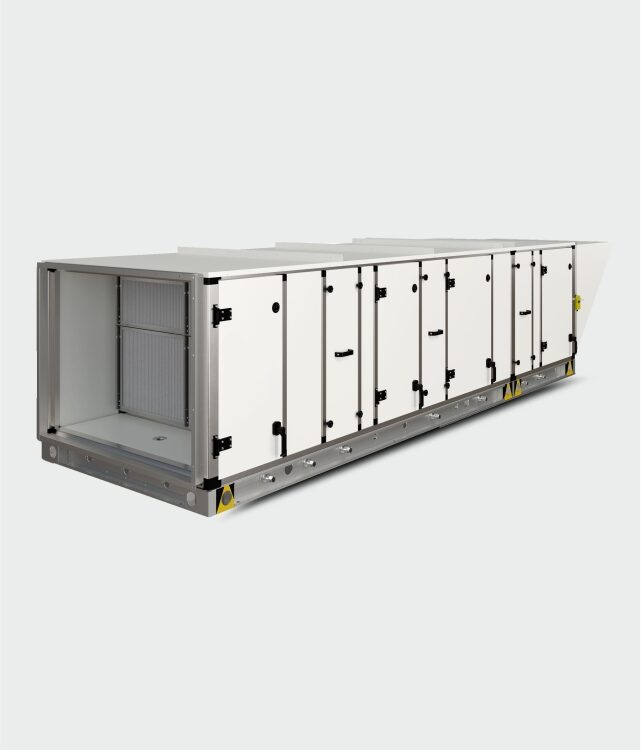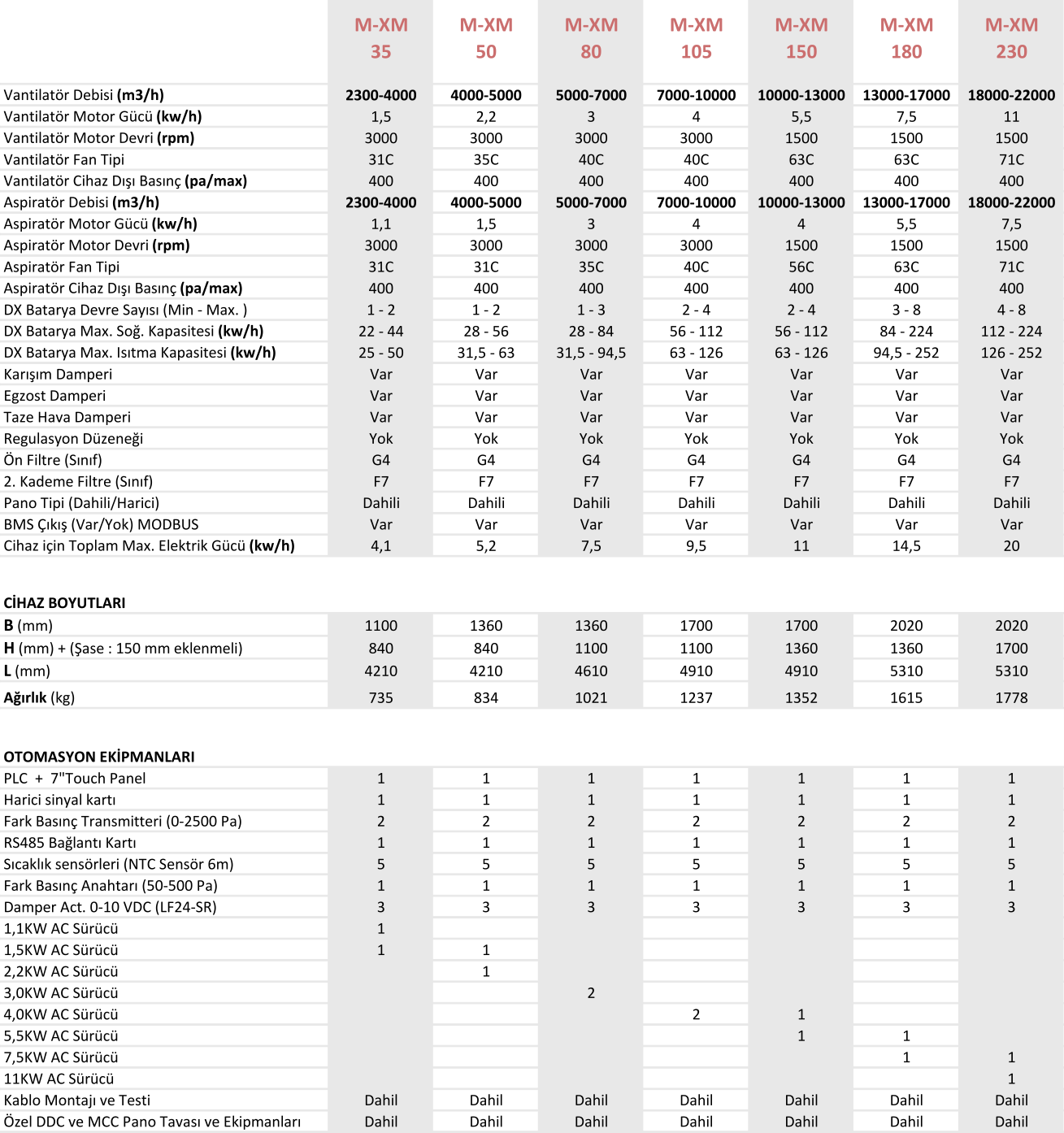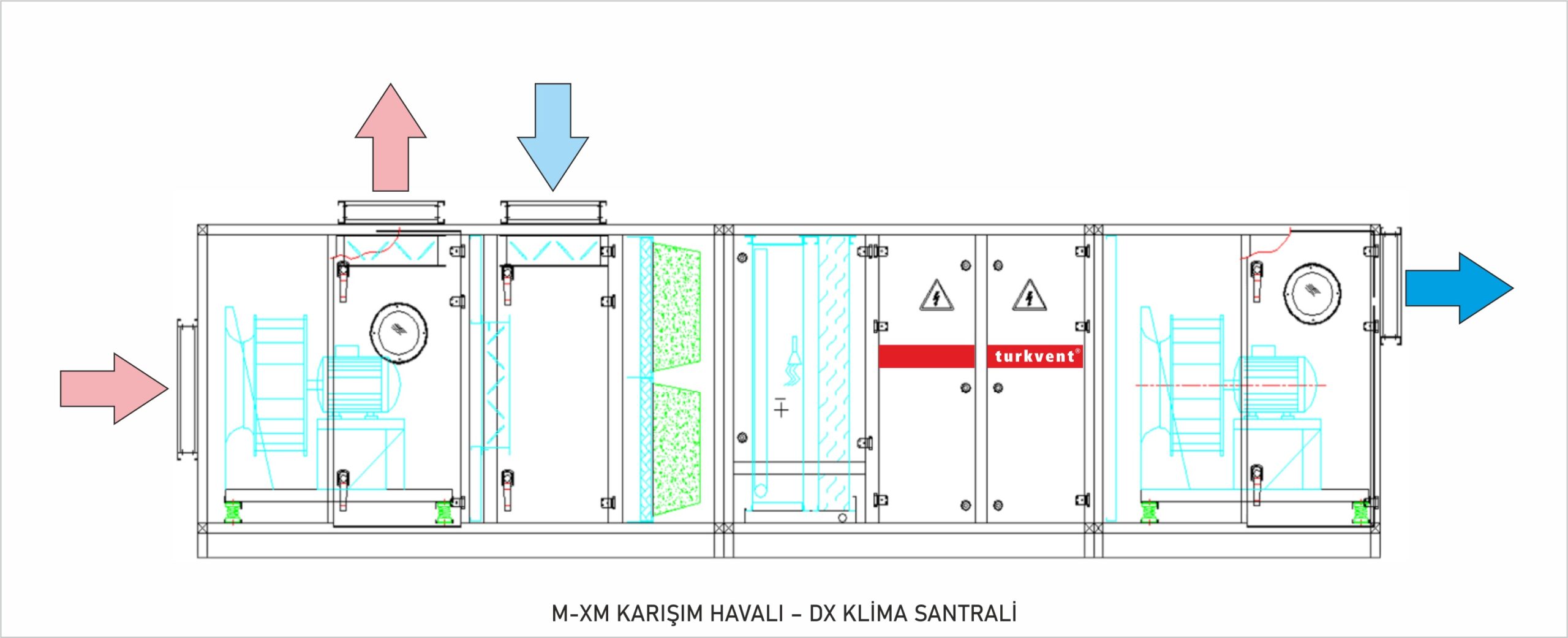In traditional hydronic HVAC systems, whether warm or cool air is delivered to the environment, boilers are required in winter and chillers, pumps, and valves in summer. In contrast, DX HVAC systems can provide conditioning without the need for additional accessories (though they require additional automation equipment).
The unparalleled advantage of DX HVAC systems lies in their ability to transfer heat directly to the air via the refrigerant flow in the DX coil, minimizing energy and heat loss. This makes them a cost-effective solution in terms of initial investment and operational costs in energy-efficient building design and operation. They emerge as the optimal solution in energy efficiency during system energy efficiency comparisons for external unit central systems




